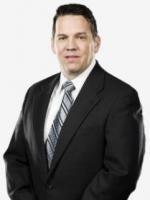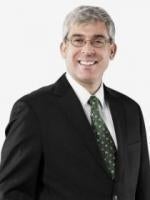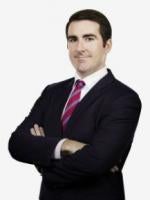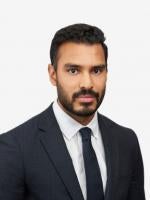Headlines that Matter for Companies and Executives in Regulated Industries
On April 18, 2023, the US Supreme Court heard oral arguments in a set of highly anticipated cases regarding the scienter—or knowledge—provision of the False Claims Act (FCA).
As background, successful conviction of an FCA violation requires proving scienter—i.e., that the defendant acted “knowingly,” meaning with “actual knowledge,” “deliberate ignorance,” or “reckless disregard.” Under the two cases argued on Tuesday, the Supreme Court will review the Seventh Circuit Court of Appeals’ conclusion that a defendant is not liable under the FCA if they (1) adopted an incorrect yet “objectively reasonable” interpretation of ambiguous regulations, and (2) were not warned away by “authoritative guidance” to the contrary. Under the Court of Appeals’ interpretation, a defendant’s “subjective intent” would be irrelevant to the question of liability under the FCA.
Many believe that, if the Supreme Court were to uphold the Court of Appeals’ decision, it would discourage the US Department of Justice (DOJ) from intervening in qui tam cases where the underlying conduct could pass the “objectively reasonable” test.
During arguments, Justices appeared to question the notion that a defendant’s subjective intent should simply be ignored when evaluating a potential FCA violation. Justice Neil Gorsuch noted that “the statute makes . . . [it] pretty hard” to argue that subjective intent does not matter. Justice Ketanji Brown Jackson, in turn, noted that, when trying to determine what the scienter is in a case, “the jury can take into account evidence concerning their actual beliefs – what they subjectively believed.”
Though many believed these cases could result in a landmark Supreme Court decision, the Justices’ questions during oral arguments on Tuesday indicate that the Court may instead offer a narrow ruling that addresses the limited scope of the question presented. A ruling is anticipated in late June 2023.
Ex-NBA Player Avoids Prison Time in Fraud Suit
At a sentencing held in New York on April 14, 2023, former Portland Trail Blazer Ruben Patterson—sometimes referred to as the “Kobe Stopper”—was ordered to complete community service during a three-year period of supervision for his alleged part in a health benefits fraud scheme.
Patterson’s sentencing follows a 2021 crackdown on an alleged $5 million health benefits fraud scheme perpetrated by more than a dozen former NBA members. According to federal prosecutors, the scheme was organized by ex-NBA player Terrence Williams, who recruited other players to take part. The government alleges that Williams provided fake invoices to players involved in the scheme in exchange for kickbacks, and players submitted fraudulent medical and dental invoices for reimbursement.
Patterson pleaded guilty in September 2022 to a count of conspiracy to commit health care fraud. Per his plea, Patterson admitted to submitting $221,000 worth of fraudulent invoices, including a bill for five family root canals in a single day.
It appears that Patterson’s acceptance of responsibility, cooperation with the government, and the fact that he himself did not recruit other players into the scheme all helped him avoid prison time during sentencing.
While most of the individuals charged in the scheme, including Terrance Williams, have entered guilty pleas, four have not. Of these, one has indicated that he intends to plead guilty, and the remaining three are preparing for trial currently scheduled for May 2023.
Former Firefighter Sentenced for Role in $50M Health Benefits Fraud
On April 17, 2023, ex-New Jersey firefighter John Sher was sentenced for his alleged role in a scheme to defraud state health benefits programs out of $50 million.
Following his guilty plea last year, Sher was sentenced to 37 months imprisonment, two years of supervised release, and ordered to pay almost $2.8 million in restitution as well as $327,897 in forfeiture.
According to prosecutors, Sher participated in a conspiracy to bill false claims to a pharmacy benefits administrator through New Jersey’s State Health Benefits Program and School Employees Health Benefits Program. Prosecutors state that, from July 2014 to April 2016, the conspirators—which included public employees and pharmaceutical representatives—recruited state and local government employees to obtain medically unnecessary prescriptions for compounded medications. In total, these false claims are alleged to have led to the pharmacy benefits administrator to make over $50 million in payments.
For his part in the scheme, prosecutors allege that Sher obtained insurance information from individuals who had prescription drug benefits administered by the pharmacy benefits administrator, completed prescriptions for compounded medications for these individuals, then marked pre-printed prescription forms to request a year’s worth of refills to obtain the highest possible reimbursement.
Prosecutors allege that William Hickman, a police officer, was the leader of the scheme and received $26 million of the $50 million total from the compounding pharmacy, some of which was distributed amongst his co-conspirators. Hickman pleaded guilty in June 2020 and is awaiting sentencing.
Shoshana Golden also contributed to this article







 />i
/>i
